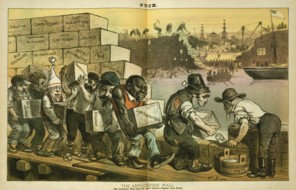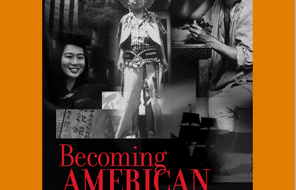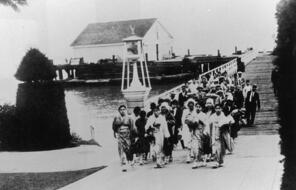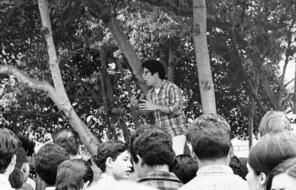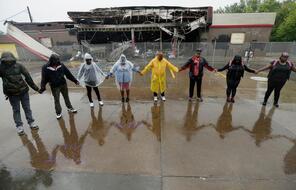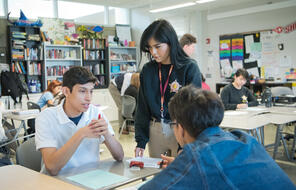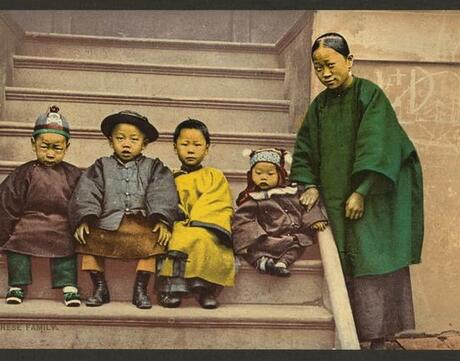
The Legacies of Chinese Exclusion
At a Glance
Language
English — USSubject
- History
- Social Studies
Grade
6–12- Racism
Overview
About This Mini-Lesson
How has the history of Chinese exclusion shaped enduring attitudes about difference, citizenship, and American identity? May 2018 marks the 136th anniversary of the Chinese Exclusion Act, the first law to restrict US immigration on the basis of race. The activities below engage students in an exploration of the historical context and consequences of the 1882 legislation, drawing connections between the exclusion era and today. They also invite students to analyze a letter of protest from Chinese immigrant Saum Song Bo and consider how immigrants themselves played a role in shaping notions of democracy and citizenship within a polity that excluded them.
Preparing to Teach
A Note to Teachers
Before teaching this mini-lesson, please review the following information to help guide your preparation process.
Activities
Activities
Materials and Downloads
Resources from Other Organizations
Additional Resources
Resources from Other Organizations
Unlimited Access to Learning. More Added Every Month.
Facing History & Ourselves is designed for educators who want to help students explore identity, think critically, grow emotionally, act ethically, and participate in civic life. It’s hard work, so we’ve developed some go-to professional learning opportunities to help you along the way.
Exploring ELA Text Selection with Julia Torres
On-Demand

Working for Justice, Equity and Civic Agency in Our Schools: A Conversation with Clint Smith
On-Demand

Centering Student Voices to Build Community and Agency
On-Demand


